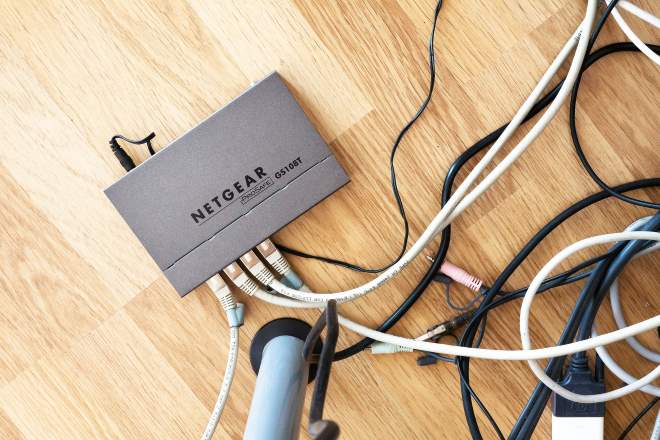Goodyear Tyres: Types, Uses, and Price Overview UK
Goodyear makes various tyre types for different vehicles and driving conditions in the UK. Knowing these types, their uses, and typical costs helps drivers stay safe and efficient. This overview covers common Goodyear tyre categories and key factors for 2026 in the UK.

Goodyear Tyre Categories and Their Applications
Goodyear manufactures tyres intended for a range of vehicles, from passenger cars to commercial trucks, each designed with specific features tailored to different driving environments common in the UK.
All-Season Tyres
All-season tyres combine attributes suited for varying weather conditions, including rain, light snow, and dry roads. In the UK’s temperate climate, these tyres provide a compromise between winter and summer performance. Goodyear’s all-season products are generally engineered with tread patterns that offer moderate grip on wet surfaces and extended tread life.
Summer Tyres
Summer tyres are designed primarily for dry and wet conditions at higher temperatures. They feature tread compounds and patterns that enhance handling and braking on warmer British roads typically experienced from late spring through early autumn. These tyres generally offer improved steering response but less suitability during cold or snowy conditions.
Winter Tyres
Winter tyres are specifically developed to maintain flexibility in low temperatures, enabling better grip on ice, snow, and cold wet surfaces. Given the occasional cold snaps and frost in parts of the UK during winter months, they can provide benefits in traction and braking over standard tyres in such conditions. Winter tyres often have deeper tread depths and specific rubber compounds suited for lower temperatures.
Performance and Ultra-High-Performance Tyres
Goodyear’s performance range focuses on vehicles requiring enhanced handling, stability, and shorter braking distances. These tyres use advanced rubber compounds and tread designs to improve cornering and responsiveness, commonly utilised in sports cars and high-performance vehicles found in the UK.
Commercial and Van Tyres
For commercial vehicles and vans frequently used on UK roads, Goodyear offers tyres with reinforced structures and durable tread to handle heavier loads and extended mileage. These tyres are designed to balance longevity with safety on both urban and motorway drives.
Run-Flat and Specialised Tyres
Run-flat tyres enable continued driving at reduced speeds after a puncture, improving safety and convenience. While not exclusive to Goodyear, these tyres are available in certain ranges. Other specialised tyres focus on noise reduction, fuel efficiency, or adaptation for electric vehicles increasingly present in the UK market.
Factors Influencing Tyre Choice in the UK
When selecting tyres suitable for UK driving conditions in 2026, several factors should be considered beyond manufacturer branding.
Climate and Seasonal Variations
The UK experiences moderate climate variability, with generally mild winters and wet conditions throughout the year. Choosing between winter, summer, or all-season tyres depends largely on the prevailing local climate and typical driving patterns.
Vehicle Type and Usage
The size, weight, and purpose of the vehicle influence tyre requirements. For example, family cars used predominantly in urban environments may prioritise fuel economy and quiet operation, while commercial vehicles require durability and load capacity.
Legal and Safety Considerations
Tyres fitted in the UK must meet specific legal standards regarding tread depth and safety. Minimum tread depth requirements are 1.6mm across the central three-quarters of the tyre, enforced to maintain adequate grip and reduce accident risk.
Technological Features
Modern tyres include features such as fuel efficiency ratings, wet grip classifications, and noise level indicators. UK drivers may assess these characteristics to select tyres aligning with personal or environmental priorities.
Typical Costs in United Kingdom (2026)
When considering Goodyear tyres in the UK, typical price ranges are described below based on recent market observations. Prices may vary depending on tyre size, retailer, and specific technology.
-
Basic option: Approximately £50 to £80 per tyre, generally suitable for entry-level passenger vehicles and standard daily driving requirements.
-
Standard option: Approximately £80 to £130 per tyre, usually includes tyres with improved tread compounds, added durability, and moderate performance features appropriate for a variety of mainstream models.
-
Premium option: Typically £130 to £220 per tyre, includes high-performance tyres with advanced compounds, including run-flat variants or specialised winter options, often fitted to larger or sports vehicles.
Prices tend to rise for larger diameter tyres and those with advanced technologies. Seasonal demand impacts winter tyre costs, which can increase during autumn months.
Maintenance and Safety Recommendations
Proper tyre maintenance is important for optimum safety, fuel efficiency, and tyre longevity. Important considerations include:
- Tread Depth Monitoring: Regularly check tread depth to ensure compliance with legal minimums and adequate grip, especially in wet UK weather.
- Tyre Pressure Checks: Maintaining correct tyre pressure reduces wear and improves fuel consumption. UK drivers should follow manufacturer recommendations and adjust pressure for load.
- Regular Inspections: Look for signs of damage such as cuts, bulges, or uneven wear which can affect safety.
- Replacement Timing: Tyres typically last 3-6 years depending on usage and storage; ageing rubber loses effectiveness even if tread remains.
Environmental and Regulatory Context in the UK
Tyres contribute to road safety and environmental impact. The UK government and regulatory bodies encourage responsible tyre disposal and use of products that can reduce CO2 emissions through lower rolling resistance.
There is growing adoption of low rolling resistance tyres designed to improve fuel economy without compromising grip. These are especially relevant to electric or hybrid vehicles, whose numbers are increasing in the UK.
Summary
Goodyear tyres cover a wide range of applications relevant to the UK market in 2026, from all-season to specialised performance models. Understanding tyre types, associated costs, and maintenance considerations supports safe and efficient vehicle operation under typical UK conditions. Drivers are advised to consider diverse factors such as climate, vehicle type, and tyre specifications in line with UK legal standards and environmental awareness.




